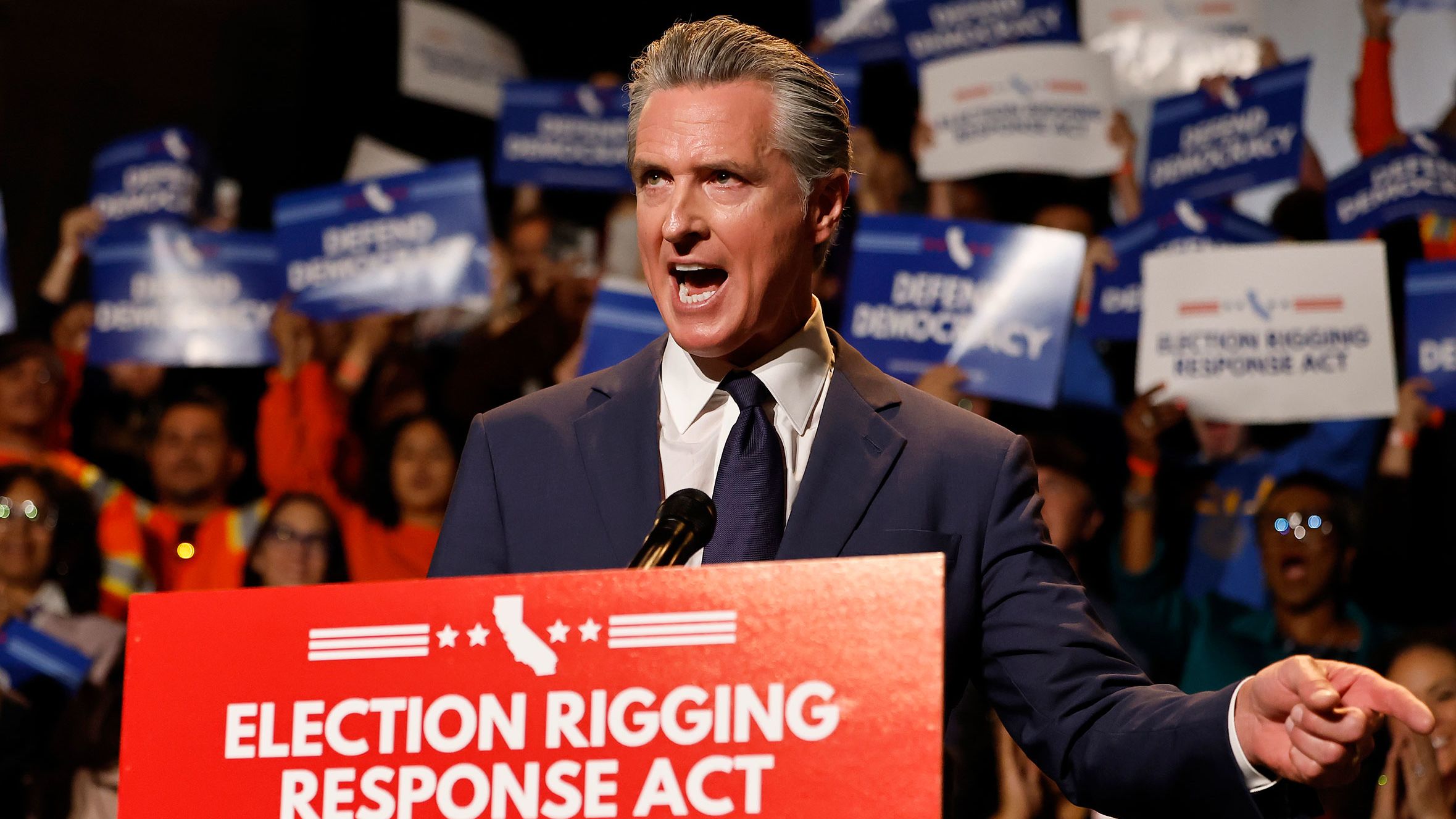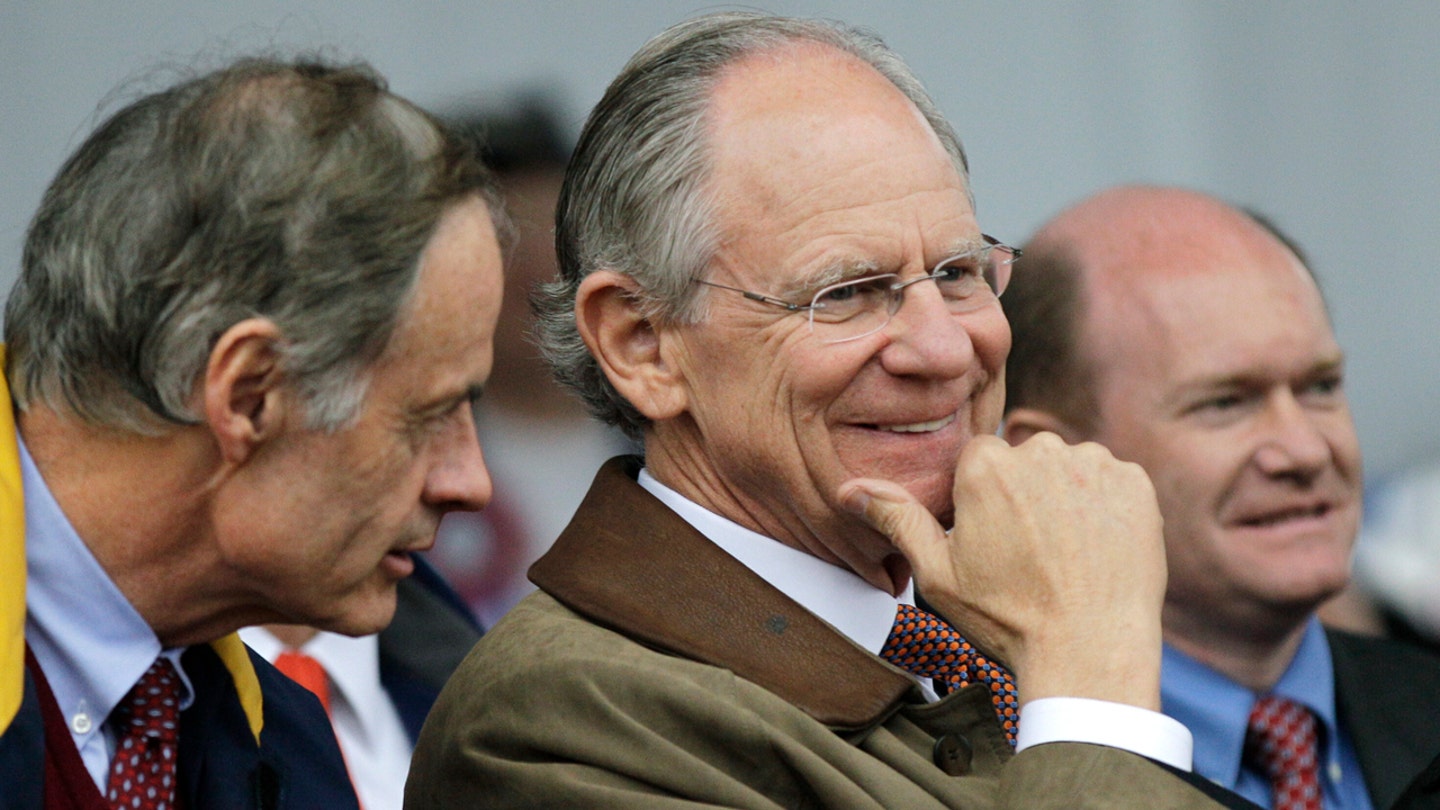
Top House Dem sides with Mamdani critics on key controversy surrounding his campaign
Entities mentioned:
- Hakeem Jeffries: Political calculation, Duty, Self-preservation
- Zohran Mamdani: Ambition, Justice, Influence
- Andrew Cuomo: Revenge, Political calculation, Power
- Dora Pekec: Loyalty, Righteousness, Determination
- Alex Bradley: Moral outrage, Loyalty, Indignation
- Michael Koncewicz: Moral outrage, Indignation, Righteousness
Article Assessment:
Credibility Score: 70/100
Bias Rating: 55/100 (Center)
Sentiment Score: 30/100
Authoritarianism Risk: 35/100 (Generally Democratic)
Bias Analysis:
The article presents multiple perspectives, including critics and supporters of Mamdani. However, it gives more space to critical voices and frames the issue as problematic for Mamdani's campaign.
Key metric: Political Party Unity
As a social scientist, I analyze that this article highlights internal Democratic Party tensions surrounding a progressive candidate in New York City. The controversy over Mamdani's housing situation exposes ideological rifts within the party, with establishment figures like Jeffries distancing themselves from more left-leaning candidates. This impacts party unity by potentially alienating progressive voters and activists, while also revealing the challenges Democrats face in reconciling diverse policy positions within their coalition. The situation underscores the ongoing struggle between centrist and progressive factions in the Democratic Party, which could affect voter turnout and party enthusiasm in future elections.

Melania Trump urges Putin to protect children in 'peace letter' delivered at US-Russia summit
Entities mentioned:
- Melania Trump: Righteousness, Influence, Unity
- Vladimir Putin: Power, Control, Influence
- Donald Trump: Ambition, Legacy, Influence
- Volodymyr Zelenskyy: Self-preservation, Unity, Duty
- Joe Biden: Legacy, Influence
Article Assessment:
Credibility Score: 65/100
Bias Rating: 70/100 (Lean Right)
Sentiment Score: 60/100
Authoritarianism Risk: 35/100 (Generally Democratic)
Bias Analysis:
The article leans right, given its exclusive source (Fox News) and positive framing of Trump's diplomatic efforts. It presents the Trump administration's actions in a favorable light while minimizing mention of other diplomatic efforts.
Key metric: International Relations and Diplomacy
As a social scientist, I analyze that this article highlights a significant diplomatic effort by the Trump administration to engage with Russia on the issue of the Ukraine war. The use of a 'peace letter' from Melania Trump to Putin represents an unconventional approach to diplomacy, appealing to humanitarian concerns and shared values of child protection. This strategy attempts to bypass traditional diplomatic channels and leverage personal relationships. The summit's outcomes suggest some progress but no definitive resolution, indicating the complexity of the geopolitical situation. The planned meeting with Zelenskyy demonstrates an attempt at balanced engagement with both sides of the conflict. This approach could potentially impact US-Russia relations and the ongoing situation in Ukraine, but its effectiveness remains uncertain.

New York mayor frontrunner Mamdani trains fire on Trump as Cuomo attacks
Entities mentioned:
- Mamdani: Ambition, Competitive spirit, Recognition
- Donald Trump: Power, Control, Influence
- Andrew Cuomo: Power, Revenge, Self-preservation
Article Assessment:
Credibility Score: 65/100
Bias Rating: 35/100 (Lean Left)
Sentiment Score: 40/100
Authoritarianism Risk: 30/100 (Generally Democratic)
Bias Analysis:
The article leans left, focusing on Democratic candidates and framing Trump negatively. It doesn't provide balanced coverage of Republican perspectives or policies.
Key metric: Political Polarization Index
As a social scientist, I analyze that this article highlights the increasing political polarization in the New York mayoral race. The frontrunner Mamdani's focus on attacking Trump, a national figure, rather than local issues, suggests a strategy to galvanize Democratic voters by tapping into anti-Trump sentiment. Meanwhile, Cuomo's attacks on Mamdani indicate intra-party conflict, which could further divide the electorate. This dynamic is likely to increase the Political Polarization Index, as it emphasizes partisan divisions over local governance issues.

Democrats introduce joint resolution to end Trump’s ‘lawless’ DC takeover
Entities mentioned:
- Democrats: Justice, Righteousness, Control
- Donald Trump: Power, Control, Ambition
- Washington DC: Self-preservation, Freedom, Security
Article Assessment:
Credibility Score: 65/100
Bias Rating: 35/100 (Lean Left)
Sentiment Score: 30/100
Authoritarianism Risk: 55/100 (Mixed/Neutral)
Bias Analysis:
The article leans left in its framing, using terms like 'lawless' that cast Trump's actions in a negative light. The focus on Democratic opposition without equal representation of the administration's perspective suggests a left-leaning bias.
Key metric: Rule of Law Index
As a social scientist, I analyze that this article highlights a significant conflict between the Democratic Party and the Trump administration over control of Washington DC. The introduction of a joint resolution by Democrats to end what they term a 'lawless' takeover of DC by Trump indicates a struggle for power and control over the capital city. This action suggests concerns about potential overreach of executive power and its implications for democratic governance. The use of the term 'lawless' implies that Democrats view Trump's actions as unconstitutional or illegal, which could have serious implications for the rule of law in the United States. This situation may lead to increased political polarization and could potentially erode public trust in governmental institutions.

All eyes on Washington, and naught but deafening silence from the District's loudest defender
Entities mentioned:
- Eleanor Holmes Norton: Duty, Justice, Determination
- David Dreier: Control, Power, Influence
- Donald Trump: Power, Control, Influence
- Muriel Bowser: Duty, Self-preservation, Indignation
- Chris Van Hollen: Justice, Moral outrage, Duty
- Brandon Scott: Duty, Justice, Indignation
- Phil Mendelson: Loyalty, Wariness, Duty
- Hakeem Jeffries: Unity, Loyalty, Self-preservation
- Kinney Zalesne: Ambition, Justice, Competitive spirit
Article Assessment:
Credibility Score: 75/100
Bias Rating: 45/100 (Center)
Sentiment Score: 35/100
Authoritarianism Risk: 55/100 (Mixed/Neutral)
Bias Analysis:
The article presents multiple perspectives and quotes from various political figures, maintaining a relatively balanced approach. While it raises questions about Norton's recent inactivity, it also provides context and historical background, avoiding overtly partisan language.
Key metric: Democratic Representation
As a social scientist, I analyze that this article highlights a critical juncture in Washington D.C.'s struggle for full representation and local autonomy. The absence of Eleanor Holmes Norton's typically forceful advocacy during a time of federal intervention in local affairs underscores the precarious position of D.C.'s governance. This situation exemplifies the ongoing tension between federal control and local self-determination in the District, impacting the key metric of Democratic Representation. The deployment of federal forces without local consent and the relative silence of D.C.'s primary congressional advocate raise significant questions about the balance of power and the effectiveness of non-voting representation. This event may serve as a catalyst for renewed discussions on D.C. statehood and the broader implications for democratic representation in the U.S. political system.

Texas Democrats signal they are ready to end redistricting standoff and return to state
Entities mentioned:
- Texas Democratic lawmakers: Justice, Influence, Righteousness
- Texas Republicans: Power, Control, Ambition
- Donald Trump: Influence, Power, Legacy
- California Democrats: Competitive spirit, Justice, Influence
- Greg Abbott: Control, Power, Determination
- Barack Obama: Influence, Unity, Justice
Article Assessment:
Credibility Score: 75/100
Bias Rating: 55/100 (Center)
Sentiment Score: 40/100
Authoritarianism Risk: 35/100 (Generally Democratic)
Bias Analysis:
The article presents perspectives from both Democrats and Republicans, though it provides more detailed coverage of Democratic actions and motivations. While it maintains a generally neutral tone, there's a slight lean towards framing the Democrats' actions more sympathetically.
Key metric: Electoral Competitiveness
As a social scientist, I analyze that this article highlights a significant political struggle over redistricting in Texas, with potential national implications for the balance of power in the U.S. House of Representatives. The Texas Democrats' temporary exodus to deny quorum was a strategic move to delay Republican-led redistricting efforts, which could result in additional Republican seats. This standoff reflects broader tensions in American democracy, particularly regarding voting rights and political representation. The involvement of other states, notably California, in potentially offsetting Texas' redistricting impact, demonstrates the interconnected nature of state-level political maneuvering in shaping national electoral outcomes. This situation underscores the critical role of redistricting in determining electoral competitiveness and representation, potentially affecting the overall health and fairness of the democratic process.

Newsom announces California redistricting push, setting up a standoff with GOP-led opponents
Entities mentioned:
- Gavin Newsom: Power, Justice, Competitive spirit
- Donald Trump: Power, Control, Influence
- Greg Abbott: Power, Control, Competitive spirit
- Arnold Schwarzenegger: Justice, Legacy, Righteousness
- Charles Munger Jr.: Justice, Influence, Legacy
- League of Women Voters: Justice, Duty, Righteousness
- Common Cause: Justice, Influence, Duty
- Steve Hilton: Ambition, Competitive spirit, Justice
- Kevin Kiley: Justice, Duty, Self-preservation
Article Assessment:
Credibility Score: 75/100
Bias Rating: 45/100 (Center)
Sentiment Score: 35/100
Authoritarianism Risk: 55/100 (Mixed/Neutral)
Bias Analysis:
The article presents multiple viewpoints and includes voices from both sides of the debate. While it gives slightly more space to Newsom's perspective, it also presents counterarguments and opposition views, maintaining a relatively balanced approach.
Key metric: Electoral Integrity
As a social scientist, I analyze that this article highlights a significant political conflict over redistricting in California, with potential national implications. Governor Newsom's push to redraw congressional maps is framed as a response to Republican efforts in other states, particularly Texas. This creates a complex dynamic where democratic principles (independent redistricting) are being challenged in the name of perceived fairness and political competition. The involvement of various political actors, advocacy groups, and former officials demonstrates the high stakes of this issue. The potential impact on Electoral Integrity is substantial, as it could affect the balance of power in Congress and set precedents for how states respond to redistricting efforts in other parts of the country. The article also touches on broader themes of partisanship, the role of independent commissions, and the tension between state-level democracy and national political strategy.

Spanberger and Earle-Sears still at odds over when to debate in Virginia governor’s race
Entities mentioned:
- Winsome Earle-Sears: Ambition, Competitive spirit, Recognition
- Abigail Spanberger: Ambition, Control, Professional pride
- CNN: Recognition, Influence, Professional pride
- Virginia Police Benevolent Association: Influence, Security, Professional pride
- Peyton Vogel: Loyalty, Professional pride, Influence
- Samson Signori: Loyalty, Control, Professional pride
Article Assessment:
Credibility Score: 75/100
Bias Rating: 55/100 (Center)
Sentiment Score: 45/100
Authoritarianism Risk: 25/100 (Generally Democratic)
Bias Analysis:
The article presents both candidates' perspectives relatively evenly, quoting spokespersons from each campaign. While it gives slightly more context for Earle-Sears' position, it maintains a generally balanced approach to reporting the debate situation.
Key metric: Voter Engagement and Participation
As a social scientist, I analyze that this article highlights the strategic maneuvering in the Virginia governor's race, particularly regarding debate participation. The disagreement over debate venues and formats reflects each campaign's attempt to control the narrative and gain a perceived advantage. This conflict could impact voter engagement by potentially limiting direct comparisons between candidates and reducing opportunities for voters to assess them side-by-side. The involvement of CNN, a national network, versus local broadcasters also speaks to tensions between national and local interests in state-level politics. The police association's split endorsements suggest a complex political landscape that doesn't cleanly align with party lines on all issues. Overall, this situation may lead to decreased voter engagement if debates are limited or seen as inaccessible, potentially affecting turnout and informed decision-making in the election.

Mike Castle, Delaware's last Republican governor and congressman, dead at 86
Entities mentioned:
- Mike Castle: Duty, Public service, Legacy
- Delaware Republican Party: Loyalty, Recognition, Unity
- Joe Biden: Ambition, Power, Legacy
- Gene Truono: Respect, Duty, Unity
- Matt Meyer: Duty, Recognition, Unity
Article Assessment:
Credibility Score: 85/100
Bias Rating: 45/100 (Center)
Sentiment Score: 60/100
Authoritarianism Risk: 20/100 (Strongly Democratic)
Bias Analysis:
The article presents a balanced view of Castle's career, highlighting achievements without overt partisan framing. It includes perspectives from both Republican and Democratic sources, maintaining a centrist approach to reporting.
Key metric: Political Polarization Index
As a social scientist, I analyze that this article highlights the career of Mike Castle, a moderate Republican known for bipartisan work and fiscal conservatism. His approach to politics, characterized by centrism and willingness to work across party lines, stands in contrast to the increasing polarization in American politics. Castle's legacy, particularly his work on commemorative coin programs and education reform, demonstrates how politicians can achieve lasting impact through collaborative efforts. The article's focus on Castle's moderate stance and successful career until his 2010 primary loss may indicate a shift in the political landscape towards more partisan positions, potentially impacting the Political Polarization Index by reminding readers of a less divisive political era.

Christian Faith An Important Part Of Who Senator Pretends To Be
Entities mentioned:
- Senator Josh Hawley: Ambition, Power, Control
- Christian constituents: Loyalty, Righteousness, Unity
Article Assessment:
Credibility Score: 30/100
Bias Rating: 25/100 (Lean Left)
Sentiment Score: 25/100
Authoritarianism Risk: 45/100 (Mixed/Neutral)
Bias Analysis:
The article leans left, using satire to criticize a Republican senator's perceived insincerity. The language and framing are overtly negative towards the subject, suggesting a clear political bias against conservative Christian politicians.
Key metric: Political Polarization Index
As a social scientist, I analyze that this article portrays Senator Josh Hawley as using Christian faith as a tool for political gain, potentially increasing political polarization. The satirical tone suggests a disconnect between professed religious values and actual motivations of political figures, which could lead to increased cynicism among voters and further division between religious and secular segments of society. This portrayal may contribute to eroding trust in political institutions and religious sincerity in public office, potentially exacerbating existing tensions in the American political landscape.